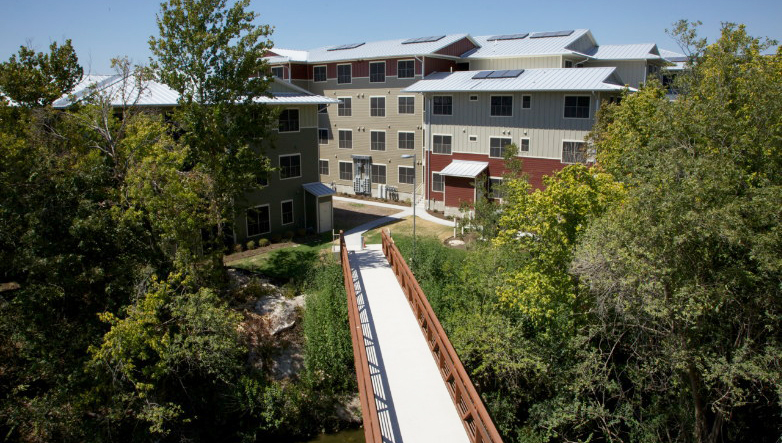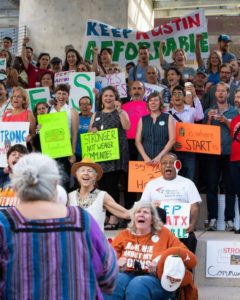by Pramod Sukumaran. This article originally appeared on Salud America.
Access to safe, affordable housing is a priority for good health.

Access to housing protects families and promotes feelings of security that can reduce stress. Affordable housing located near safe parks, full-service grocery stores, and living-wage employment helps to build community and encourages healthy eating and exercise.
Two new initiatives will try to help solve the lack of affordable housing in Austin, Texas (34.5% Latino).
$250 Million for Affordable Housing
In November 2018, Austin voters overwhelmingly approved a $250 million bond for affordable housing.
Here’s where the money will go:
- $100 million for the Austin Housing Finance Corporation to buy land. The city then can give the land to affordable housing developers.
- $94 million to go to rental housing assistance.
- $28 million to build houses only for residents who fall under a certain income level.
- $28 million for an existing housing repair program in underserved communities
Just the words “affordable housing” don’t mean anything on their own, Sumit DasGupta a former technology development consultant and Mayor Steve Adler’s appointee for the task force that came up with the proposal, recently told The Daily Texan.
“As we go forward, we’ll have to keep spending more and more in order to keep this city affordable for everybody, not just for the rich,” DasGupta said.
Though the bond is focusing on the needs of historically underserved residents like students, who are planning to stay in Austin after graduation, and many others who could benefit from any the affordable housing, even indirectly.
Madeline Detelich, a student at University of Texas at Austin, told The Daily Texan she hopes the measure will increase low-income residents’ options.
“It’s a scary place out there and most people have the experience that finding a place to rent is terrifying,” she said. “I am excited about this … the city is going to build thousands of more units which will hopefully make landlords respond to that pressure. We are starting to redefine what’s possible in this city.”
Affordable Apartments to Austin

A recent rally for the $250 affordable housing bond in Austin (via Keep Austin Affordable)
A 70-unit affordable apartment community will help families living in Austin’s Travis Heights neighborhood.
Located on nearly 1.5 acres, Aria Grand will include 12 one-, 30 two-, and 28 three-bedroom units. Unit amenities will include central air conditioning and EnergyStar appliances, including dishwashers and full-size washer/dryer connections.
30 affordable units will be available to families and individuals earning no more than 60% of the area median income (AMI). 24 units will be available at 50% of the AMI. Six units will be available at 30% of the AMI.
“The city of Austin and its surrounding communities feature strong and diverse local economies, booming populations, and high demands for affordable housing,” Jack Manning, president and CEO of Boston Capital, told Affordable Housing Finance.
Why Are These Initiatives Needed?
In Austin and other cities, housing costs often force low-income and Latino families to make difficult financial decisions.
Many forgo medical expenses, utilities, and sometimes food to pay rent or mortgages each month.
Austin also is among the nation’s most segregated cities.
The Austin economy in general and the Latino communities in particular would benefit from an economic development climate that acts as a catalyst for investment in the Latino business community, as well as strategies to strengthen the social network to provide for economic sustainability.
The geographical dispersion of affordable housing has also moved into the suburbs as the Austin housing market has become more expensive.
Development of affordable housing in Austin will help the Latinos to develop and prosper.
This same kind of investment is happening more and more across the country.
For example, San Antonio, Ohio, Denver, and Longmont, Colo., are all working on this issue.
Get your city involved today!
The opinions expressed in this article are those of the author and do not necessarily reflect those of the Diverse Elders Coalition.
